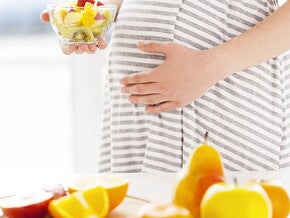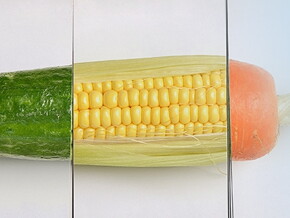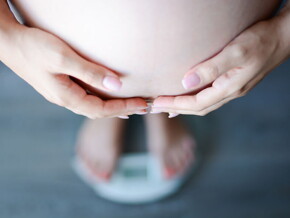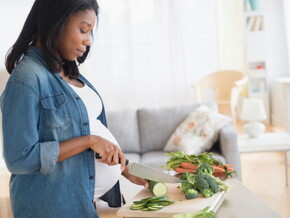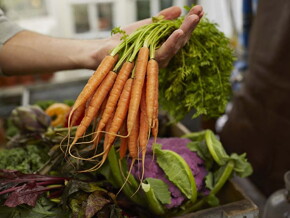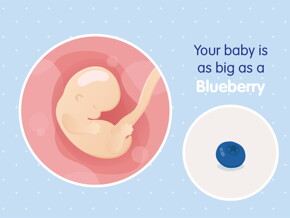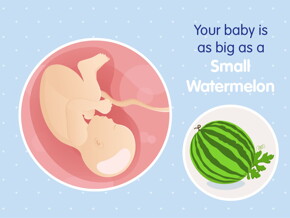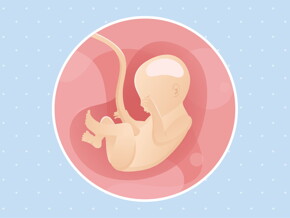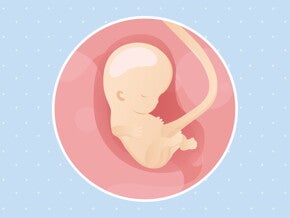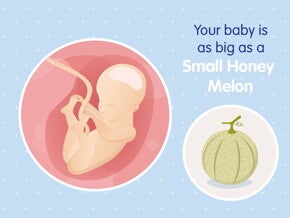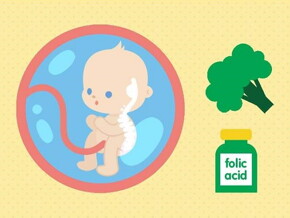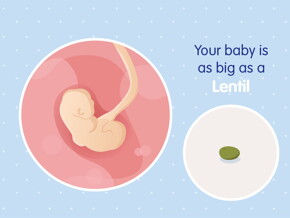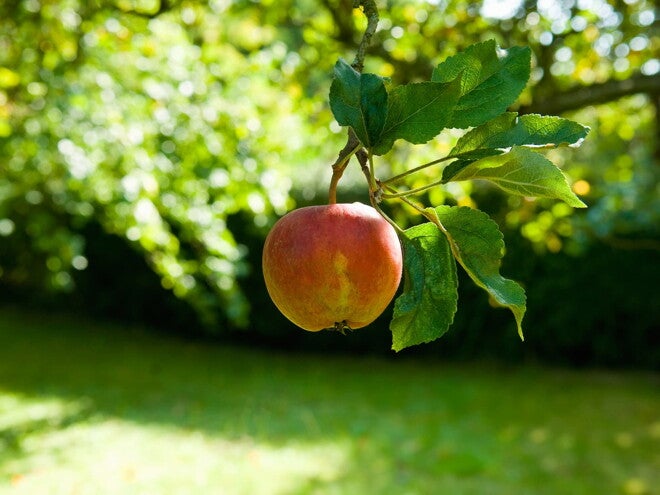
Focus on fruits and veggies
Fresh, frozen or canned fruits and vegetables can all be healthy options. Did you know dark green, orange or red fruits and vegetables usually contain the most vitamins? Spinach, broccoli, red pepper, sweet potatoes and oranges are all excellent choices to help boost your intake of important vitamins and minerals like folic acid1.
- Choose vegetables and fruit prepared with little or no added fat, sugar or salt.
- Have vegetables and fruit more often.
Go for the grains
Whole grain foods are tasty, nutritious, and have more fibre than refined grains. Did you know you should aim to eat 28 grams of fibre2 each day during your pregnancy? Whole grains, along with vegetables, beans and lentils will help you to reach your daily goal.
- Choose grain products that are low in fat, sugar or salt.
- There’s more to whole grains than just wheat and brown rice.Opt for whole grains like farro, buckwheat, and amaranth to change things up.
Learn more about the importance of fibre.
Maximize milk
Dairy products are a great source of calcium, which is important for healthy bones (for you and baby). Avoid any unpasteruzied milk products.
- Select lower fat milk or milk alternatives.
- Fortified soy beverages low in sugar are a healthy alternative to milk
Pump up the protein
Protein is an important building block of your baby's tissues and organs3. It works for you too. Along with your daily needs, protein at every meal helps ward off feelings of fatigue and hunger throughout the day. Get your required protein from prime protein sources which include: fish, poultry, meat, eggs, dairy products, legumes (dried peas, beans, lentils, etc.), nuts, and seeds. Some fish should be avoided, learn more about foods to avoid when you're expecting.
- Have plant-based protein foods such as beans, lentils and tofu more often.
- Prepare your proteins with little or no added fat or salt.
Oils and Fats
Oils and fats supply calories and essential fats, and help our bodies to absorb the fat-soluble vitamins A, D, E and K. A certain amount of fat is essential for our bodies to function and maintain fat stores that control our body temperature. The type of fat you eat is just as important as how much you eat. Choosing foods that have healthy fats, rather than mostly saturated fat, can lower your risk for cardiovascular disease4. Healthy fats such as omega 3 and omega 6 fatty acids and monounsaturated fats such as those found in fish, nuts, seeds and olive oil may have cardiovascular health benefits. Including a small amount of unsaturated fat as part of a healthy eating pattern will help you ensure you are getting enough essential fats.
Support with Supplements
Eating a balanced and varied diet will provide you with most of the essential vitamins and minerals you need during your pregnancy. But you may have a hard time getting some key nutrients from food alone. That's why Canadian health experts recommend that all women who are pregnant or who are trying to get pregnant take a daily multivitamin that contains at least 0.4 mg of folic acid and 16 to 20 mg or iron5,6.
Learn more about the importance of these nutrients and others during pregnancy.
Eating twice as healthy, not eating twice as much
Eating twice as healthy, not eating twice as much
The choices you make now are not just for yourself but also for the baby growing inside of you. You may have heard the saying “now you're eating for two”, it's true, but it doesn't mean you can or should eat twice as much. Pregnant and breastfeeding women need more calories to support the growth of baby – this can be done by adding a healthy snack or extra food to your meal, like:
- Fruit and yogurt
- Cereal with milk
- Half a bagel with cheese
Why healthy eating is so important
Benefits to you
- Helps achieve a healthy weight gain
- Provides needed energy
- Speeds up recovery after delivery
- Helps prevent common pregnancy problems, such as heartburn, constipation, fatigue and gestational diabetes
Benefits to baby
- Reduces the risk of certain birth defects
- Helps ensure a healthy birth weight
- Provides protein for rapid tissue growth
References:
1 Public Health Agency of Canada. The sensible guide to a healthy pregnancy. Ottawa: Ministry of Health, 2018. https://www.canada.ca/en/public-health/services/health-promotion/healthy-pregnancy/healthy-pregnancy-guide.html
2 Institute of Medicine. Dietary reference intakes for energy, carbohydrate, fiber, fat, fatty acids, cholesterol, protein, and amino acids. Washington: National Academies Press, 2005.
3 FAO, WHO, & UNU. Protein and amino acid requirements in human nutrition: report of a joint FAO/WHO/UNU expert consultation. Geneva, Switzerland: World Health Organization, 2007.
4 Health Canada, 2019. Choosing foods with healthy fats. Available at: https://food-guide.canada.ca/en/healthy-eating-recommendations/make-it-a-habit-to-eat-vegetables-fruit-whole-grains-and-protein-foods/choosing-foods-with-healthy-fats/
5 Wilson RD et al. Pre-conception Folic Acid and Multivitamin Supplementation for the Primary and Secondary Prevention of Neural Tube Defects and Other Folic Acid-Sensitive Congenital Anomalies. SOGC Clinical Practice Guideline, No. 324. J Obstet Gynaecol Can. 2015;29(12):1003-1013.
6 Health Canada, 2019. Healthy eating and pregnancy. Available at: https://www.canada.ca/en/public-health/services/pregnancy/healthy-eating-pregnancy.html






